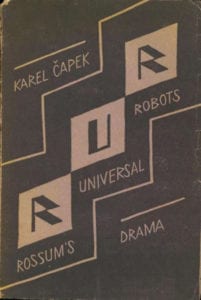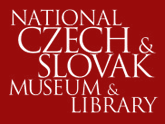Written by Sarah Henderson, NCSML K-12 Learning Specialist
I am writing to you from my couch in North Liberty, Iowa. This September I will have been the K-12 Learning Specialist for the NCSML for three years and I am incredibly proud of that fact. I have loved being your community educator for the past two and a half years. In our current climate, I am finding a new appreciation for the work I was able to do and hope to do again very soon.
Through the school year, I worked weekly with Metro High School to design project-based curriculum. At least once a month I teach an art lesson at Foundation 2 youth shelter and I regularly give school tours at the museum to all ages. Today, though, I am trying to envision how I can be a community educator from my home. I dearly miss the silly and thoughtful questions and comments from my students. As I reflect back on the past school year, the most fun I had was with Metro High School in the fall semester as we read Rossum’s Universal Robots. I was shocked at how this 100-year-old book could reflect so much of our society today. We talked about race, gender, and class divide all the while dissecting what this author might have been predicting for us; the all too mysterious future that he tried to hazard a guess toward. Was he that far off?
 In truth, I was teaching this book because I had to; it was Czech and tied nicely into a robotics project I could design with Metro students. The more I read and thought about this play, however, the more I became passionate about its story and themes. So my challenge as an educator from home is to now share it with you. I have launched a Facebook Book Club for R.U.R. and you can find it here. There I will post our reading schedule and discussion topics. You can read the book for free and without downloading it here.
In truth, I was teaching this book because I had to; it was Czech and tied nicely into a robotics project I could design with Metro students. The more I read and thought about this play, however, the more I became passionate about its story and themes. So my challenge as an educator from home is to now share it with you. I have launched a Facebook Book Club for R.U.R. and you can find it here. There I will post our reading schedule and discussion topics. You can read the book for free and without downloading it here.
First, though, you might want to know a little more about this play and its incredible author. R.U.R. is a 1920 science fiction play by the Czech writer Karel Čapek. Čapek also wrote many politically charged works dealing with the social turmoil of his time. He and his brother campaigned in favor of free expression and thoroughly opposed the rise of both fascism and communism. In R.U.R. he introduced and made popular the frequently used international word robot, coming from the Czech work robota which can be translated to ‘slave labor.’ I do not want to say much more, because I think part of the wonder in this play is experiencing it without preconceptions. Check out our Facebook page and join to learn more!

